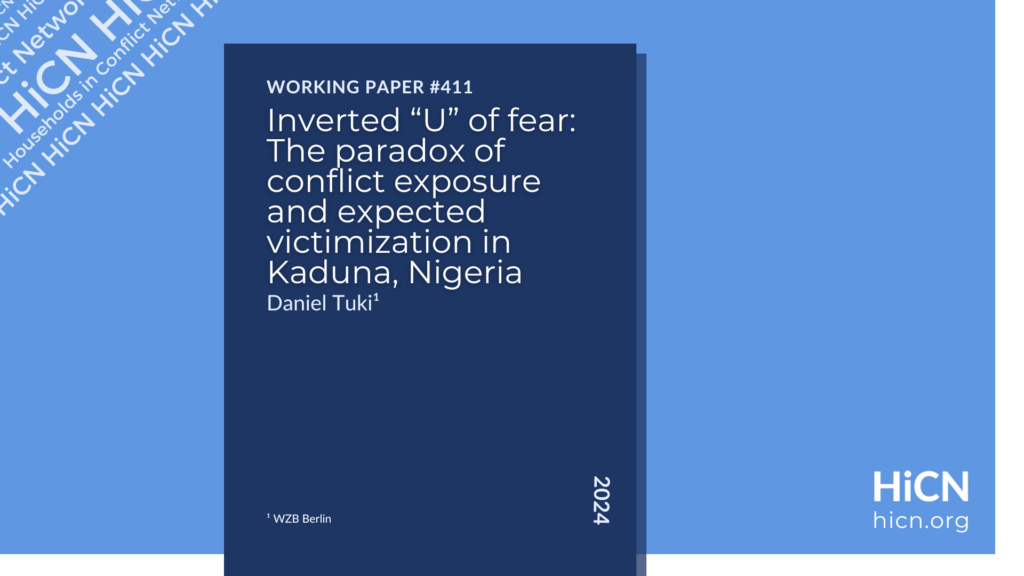
Using novel survey data collected from the Northern Nigerian state of Kaduna, this study examines the effect of exposure to violent conflict on people’s expectation of being directly affected by violent conflict in the future. The regression results show that there is a curvilinear relationship akin to an inverted “U” between conflict exposure and expected victimization. This suggests that at low levels of conflict exposure, people worry that they will be victimized. As conflict exposure increases, so does their fear of being victimized. This persists until the point at which expected victimization peaks. Further exposure to violent conflict beyond this peak leads to a decline in expected victimization. The decline after the peak might be because the threat of violent conflict prompts people to rely more heavily on their ethnoreligious kinship ties for both material and nonmaterial support, which in turn attenuates their fear of being victimized.